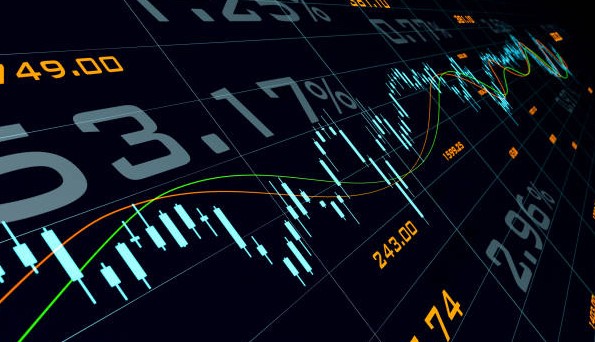 As data breaches become nearly daily, the demand for cyber insurance has surged. Organizations from global corporations to small businesses seek protection against the fallout of ransomware, phishing attacks, and system intrusions. But as the market grows, so does the complexity of these policies—and the legal minefield that comes with them. Exclusions, vague language, and disputes over liability are common. For lawyers, navigating this space has become a high-stakes challenge in risk assessment, policy interpretation, and litigation strategy.
As data breaches become nearly daily, the demand for cyber insurance has surged. Organizations from global corporations to small businesses seek protection against the fallout of ransomware, phishing attacks, and system intrusions. But as the market grows, so does the complexity of these policies—and the legal minefield that comes with them. Exclusions, vague language, and disputes over liability are common. For lawyers, navigating this space has become a high-stakes challenge in risk assessment, policy interpretation, and litigation strategy.
The Rise of Cyber Insurance
Cyber insurance began as a niche offering but has quickly evolved into a standard component of risk management portfolios. The policies typically cover costs associated with data breaches—such as forensic investigations, notification expenses, legal fees, public relations, and even ransom payments. However, many policyholders fail to realize that these policies are far from uniform. Each insurer defines its terms, limitations, and exclusions, leaving businesses unexpectedly vulnerable.
This is where legal counsel plays a pivotal role. Lawyers are now essential in drafting and reviewing cyber insurance policies to ensure clients understand exactly what is—and isn’t—covered.
Legal Loopholes and Policy Exclusions
One of the most pressing issues lawyers face in cyber insurance litigation is navigating the vast array of policy exclusions. These exclusions are often buried in fine print and can be invoked by insurers to deny claims. Common exclusions include:
- Acts of war or terrorism: Many policies don’t cover cyberattacks blamed on nation-states—even if it’s just a guess.
- Insider threats: If a breach is traced to a rogue employee or contractor, the insurer may argue that it falls outside the scope of the policy.
- Failure to maintain cybersecurity standards: If the insured party didn’t follow specific protocols (like patching software or updating firewalls), the insurer may decline to pay.
- Prior acts exclusions: If a system vulnerability existed before the policy took effect, the breach may not be covered—even if it wasn’t exploited until later.
Such loopholes lead to drawn-out disputes, in which lawyers must build meticulous cases to prove that the incident falls within the bounds of coverage.
The Challenge of Attribution
One of the thorniest legal challenges in cyber insurance claims is attribution—determining who caused the attack. Insurers often demand clear attribution to evaluate whether exclusions (like acts of foreign aggression) apply. However, attributing a cyberattack is notoriously tricky, especially when hackers use anonymizing tools or spoof other actors.
Legal teams often work with cybersecurity experts to establish plausible attribution, but courts may still struggle to interpret this evidence.
Lawyers must, therefore, craft arguments that are not only technically sound but legally persuasive. They often operate in a gray area where precedent is limited or non-existent.
Regulatory Compliance and Legal Exposure
Beyond the insurer-policyholder relationship, companies face growing legal exposure due to tightening data protection laws. Laws like GDPR and CCPA require companies to protect consumer data. Failure to comply can trigger regulatory fines, lawsuits, and reputational damage—all of which may or may not be covered under a cyber insurance policy.
Lawyers advising clients must assess how well their coverage aligns with regulatory obligations. Some policies offer regulatory defence coverage, but others treat regulatory fines as uninsurable penalties. It’s crucial to scrutinize the language, as a misalignment could leave businesses financially crippled in the wake of a breach.
Litigating Coverage Denials
When insurers deny cyber insurance claims, litigation often follows. Legal teams representing policyholders must deconstruct the policy language, demonstrating that the breach falls within covered parameters. This frequently involves contract law principles, precedents from other types of insurance litigation, and detailed forensic evidence.
Conversely, insurers also retain legal teams to defend denials, often arguing that the breach occurred due to the insured’s negligence or that specific exclusions apply. The legal battlefield is becoming increasingly sophisticated, with both sides drawing on interdisciplinary expertise.
Best Practices for Legal Counsel
Given these challenges, lawyers must approach cyber insurance with a proactive strategy. Key best practices include:
- Policy review: Carefully examine cyber insurance policies before purchase or renewal to identify risky exclusions or ambiguous clauses.
- Cyber hygiene audit: Work with clients to ensure they meet the cybersecurity standards outlined in their policies.
- Incident response planning: Help clients develop a breach response plan that aligns with legal obligations and insurance requirements.
- Regular training: Educate corporate clients and IT teams about evolving risks and legal responsibilities.
- Ongoing monitoring: Encourage periodic reassessment of insurance needs as business operations and cyber threats evolve.
Cyber insurance is no longer just a financial tool—it’s a legal battleground. As data breaches continue to surge in frequency and sophistication, lawyers are on the frontlines, ensuring their clients are not blindsided by exclusions, denied claims, or regulatory fallout. In this rapidly evolving space, legal expertise is the key to unlocking the true value of cyber insurance while shielding businesses from catastrophic liability.


